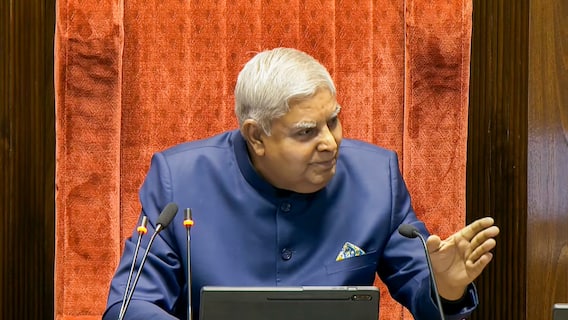North Korea Fires New Type Of Ballistic Missile, Possibly Using Solid Fuel: Seoul Military
According to Seoul military, North Korea likely fired a 'new type' of ballistic missile that may have used advanced solid fuel.

North Korea likely fired a "new type" of ballistic missile on Thursday that may have used advanced solid fuel, Seoul's military said, as reported by the news agency AFP. The military was representing a potential technical breakthrough for Pyongyang's banned weapons programs. "North Korea appears to have fired a new type of ballistic missile, possibly using solid fuel," Seoul's Joint Chiefs of Staff told AFP.
All of Pyongyang's known intercontinental ballistic missiles are liquid-fuelled, and solid-fuel ICBMs that can be launched from land or submarines have long been on top of leader Kim Jong Un's wish list.
Earlier in February, North Korea showed a record number of nuclear and intercontinental ballistic missiles at a military parade in Pyongyang. The missiles included what analysts said was possibly a new solid-fuelled ICBM. Seoul's military on Thursday said it had detected one "medium range or longer" ballistic missile launched on a lofted trajectory -- up not out -- from the Pyongyang area at 0723 (1023 GMT), which flew 1,000 km (621 miles), AFP reported.
According to AFP, Japan, which briefly issued a seek shelter warning to residents of the northern Hokkaido region, said the missile had not fallen within the country's territory and posed no threat to residents.
The United States said it "strongly condemns" North Korea for the test of what it described as a "long-range ballistic missile". The launch is the latest in a string of banned weapons tests conducted by North Korea, which has already fired several of its most powerful intercontinental ballistic missiles this year.
Earlier, North Korea has tested another underwater nuclear drone in a recent demonstration of its military power and show of strength. North Korea conducted a test of the nuclear-capable unmanned underwater weapon Haeil-1 from April 4 to April 7, reported news agency Reuters.
It said the drones cruised 1,000 km for about 71 hours and hit the target. It has also tested what its state media has claimed are nuclear-capable underwater drones -- known as Haeil, the Korean word for tsunami -- which it says are capable of unleashing a "radioactive tsunami". Relations between the two Koreas are at one of their lowest points in years, with Pyongyang last year declaring itself an "irreversible" nuclear power, effectively ending the possibility of denuclearisation talks.
Trending News
Top Headlines






































